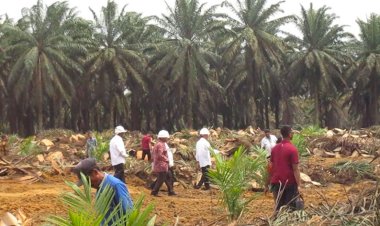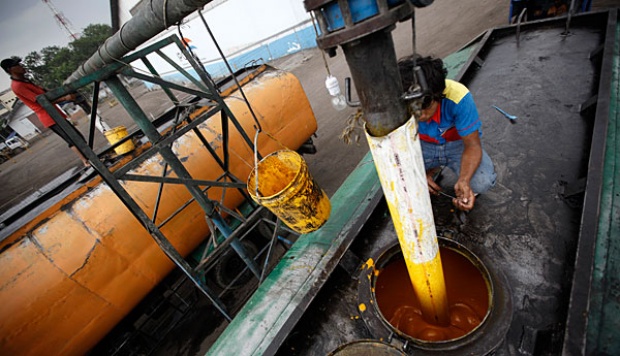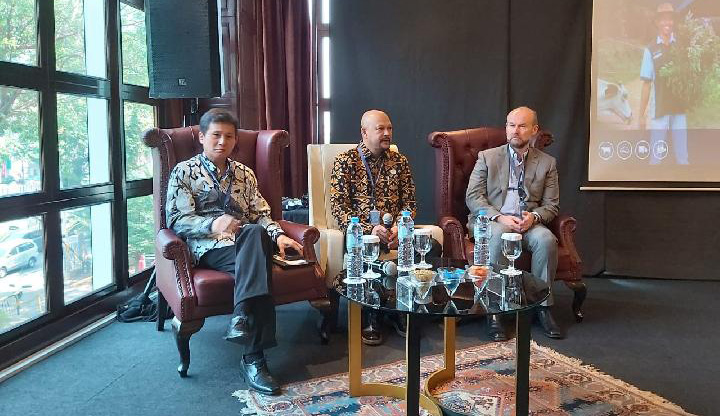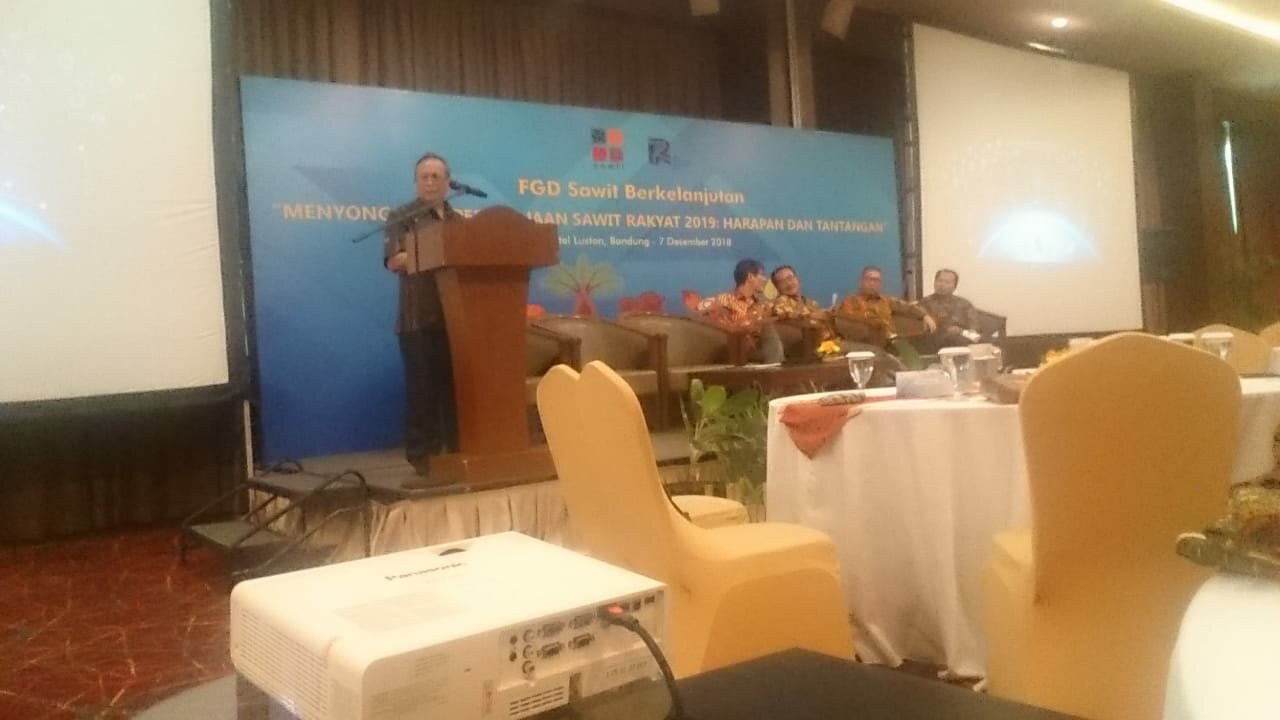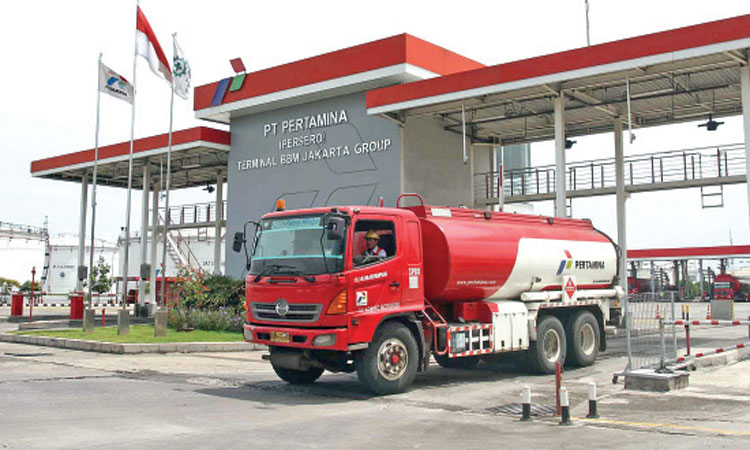Stakeholders Ensure B20 Mandatory Well-Implemented
A SOCIALIZATION event was once again held to make sure the expanded B20 program is well-implemented.
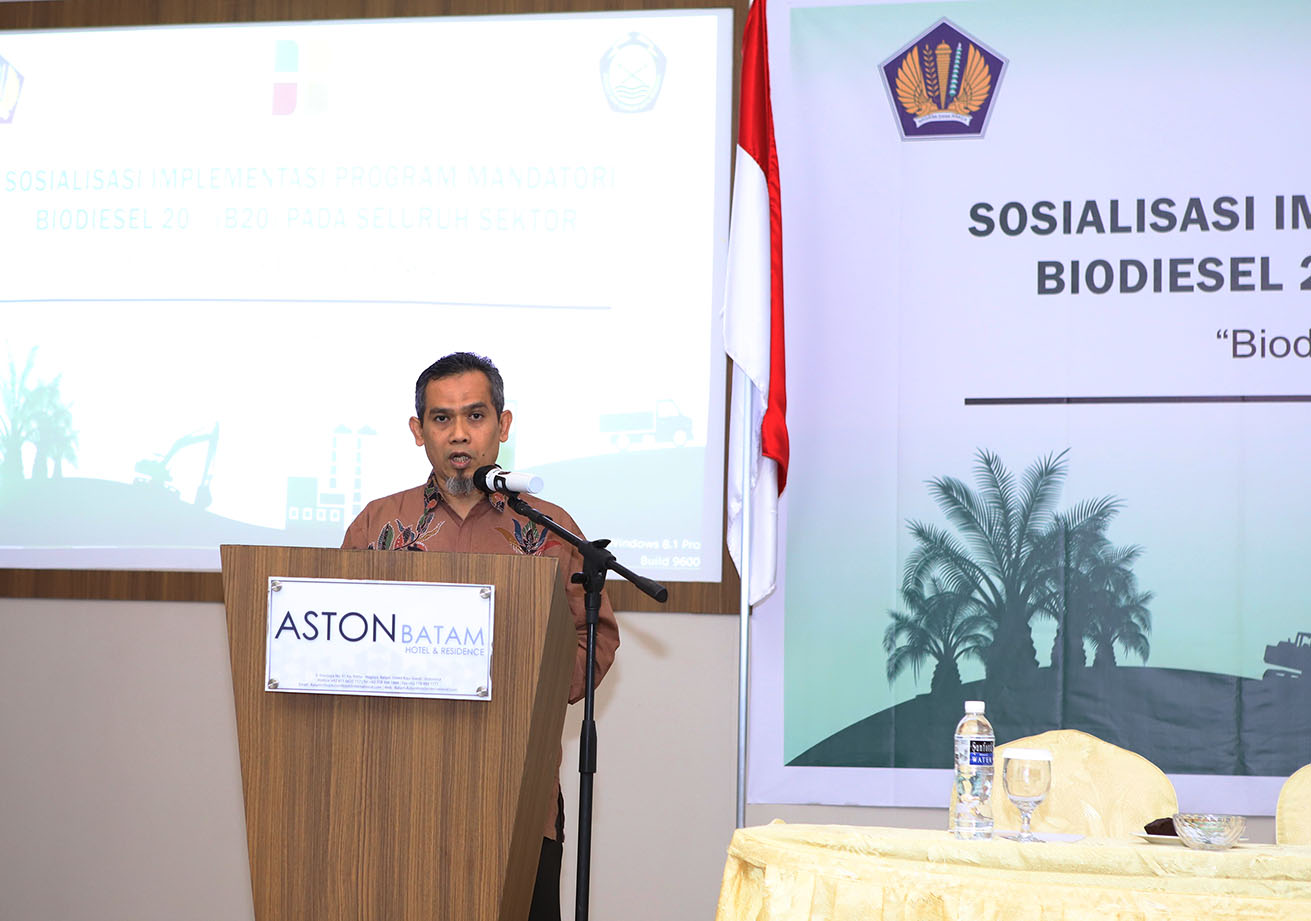
A SOCIALIZATION event was once again held to make sure the expanded B20 program is well-implemented. This time, the socialization was organized by the Indonesian Oil Palm Estate Fund (BPDPKS) in Batam, Riau Islands, to bring together all stakeholders, included officials from government and B20 users.
“The government has reaffirmed its commitment to implement the expanded B20 program. This is a strategic national programs to cut oil import, save foreign exchange, and reduce greenhouse gas emissions,” Edi Wibowo, Director of Fund Disbursement of BPDPKS said in Batam, Riau Islands, Wednesday (26/9/2018).
The “Biodiesel for The People and Country”-themed event was officially launched by Syamsul Bahrum, the 2nd Assistance for Economic Development to the Governor of Riau Islands. Attendees at the meeting included officials from the government, fuel and biofuel companies, classification agencies, related associations, academia, state-owned enterprises, etc.
According to Edi, one of BPDPKS’ efforts to support the B20 mandatory policy is to provide incentives. “We provide incentives to make sure B20 is always available so that the biodiesel mandatory program could run well,” Edi said.
 In his keynote address, Syamsul Bahrum suggested that implementation of the program should also notice local character in order to boost local economic development. He suggested the central government to utilize potency of local natural resources. “The province of Riau Islands has thousand uninhabited islands. We can utilize the islands to process raw materials for biodiesel,” Syamsul said.
Meanwhile, Economic Affairs Coordinating Ministry Deputy Assistant Willistra Danny said that the expanded B20 mandatory program is a part of global trend in utilizing fuel. That is the trend of converting fossil-based fuels to bio-based liquid fuels.
“Using B20 means we are on the track of global trend. If we don’t do it now, we will be left behind. Besides, fossil-based fuel will soon run out,” Willistra said.
He also suggested to develop biodiesel from wasted oil. This method has been applied in many countries. “In the future we could convert wasted oil into biodiesel.” ***
In his keynote address, Syamsul Bahrum suggested that implementation of the program should also notice local character in order to boost local economic development. He suggested the central government to utilize potency of local natural resources. “The province of Riau Islands has thousand uninhabited islands. We can utilize the islands to process raw materials for biodiesel,” Syamsul said.
Meanwhile, Economic Affairs Coordinating Ministry Deputy Assistant Willistra Danny said that the expanded B20 mandatory program is a part of global trend in utilizing fuel. That is the trend of converting fossil-based fuels to bio-based liquid fuels.
“Using B20 means we are on the track of global trend. If we don’t do it now, we will be left behind. Besides, fossil-based fuel will soon run out,” Willistra said.
He also suggested to develop biodiesel from wasted oil. This method has been applied in many countries. “In the future we could convert wasted oil into biodiesel.” ***
 In his keynote address, Syamsul Bahrum suggested that implementation of the program should also notice local character in order to boost local economic development. He suggested the central government to utilize potency of local natural resources. “The province of Riau Islands has thousand uninhabited islands. We can utilize the islands to process raw materials for biodiesel,” Syamsul said.
Meanwhile, Economic Affairs Coordinating Ministry Deputy Assistant Willistra Danny said that the expanded B20 mandatory program is a part of global trend in utilizing fuel. That is the trend of converting fossil-based fuels to bio-based liquid fuels.
“Using B20 means we are on the track of global trend. If we don’t do it now, we will be left behind. Besides, fossil-based fuel will soon run out,” Willistra said.
He also suggested to develop biodiesel from wasted oil. This method has been applied in many countries. “In the future we could convert wasted oil into biodiesel.” ***
In his keynote address, Syamsul Bahrum suggested that implementation of the program should also notice local character in order to boost local economic development. He suggested the central government to utilize potency of local natural resources. “The province of Riau Islands has thousand uninhabited islands. We can utilize the islands to process raw materials for biodiesel,” Syamsul said.
Meanwhile, Economic Affairs Coordinating Ministry Deputy Assistant Willistra Danny said that the expanded B20 mandatory program is a part of global trend in utilizing fuel. That is the trend of converting fossil-based fuels to bio-based liquid fuels.
“Using B20 means we are on the track of global trend. If we don’t do it now, we will be left behind. Besides, fossil-based fuel will soon run out,” Willistra said.
He also suggested to develop biodiesel from wasted oil. This method has been applied in many countries. “In the future we could convert wasted oil into biodiesel.” *** 
